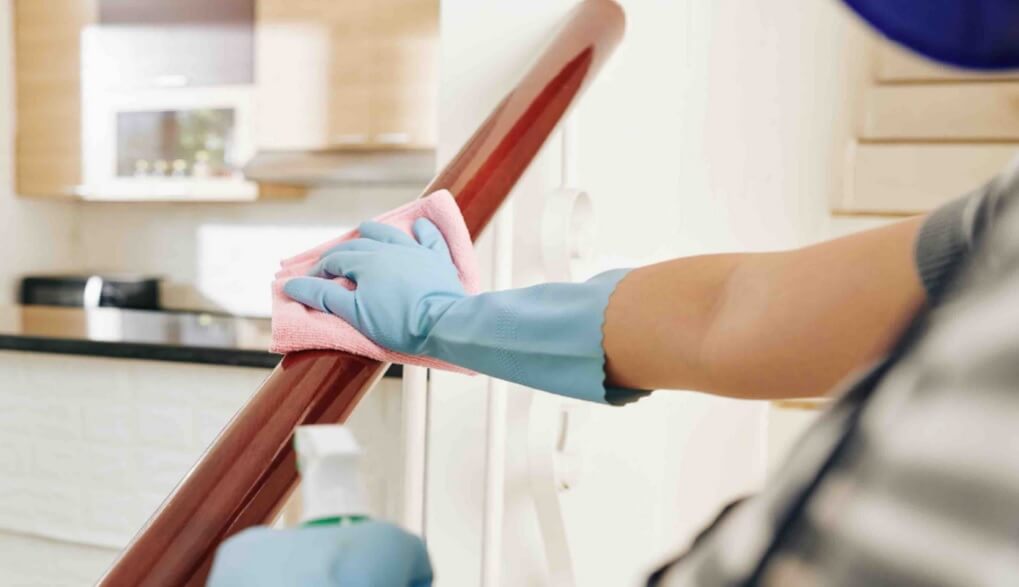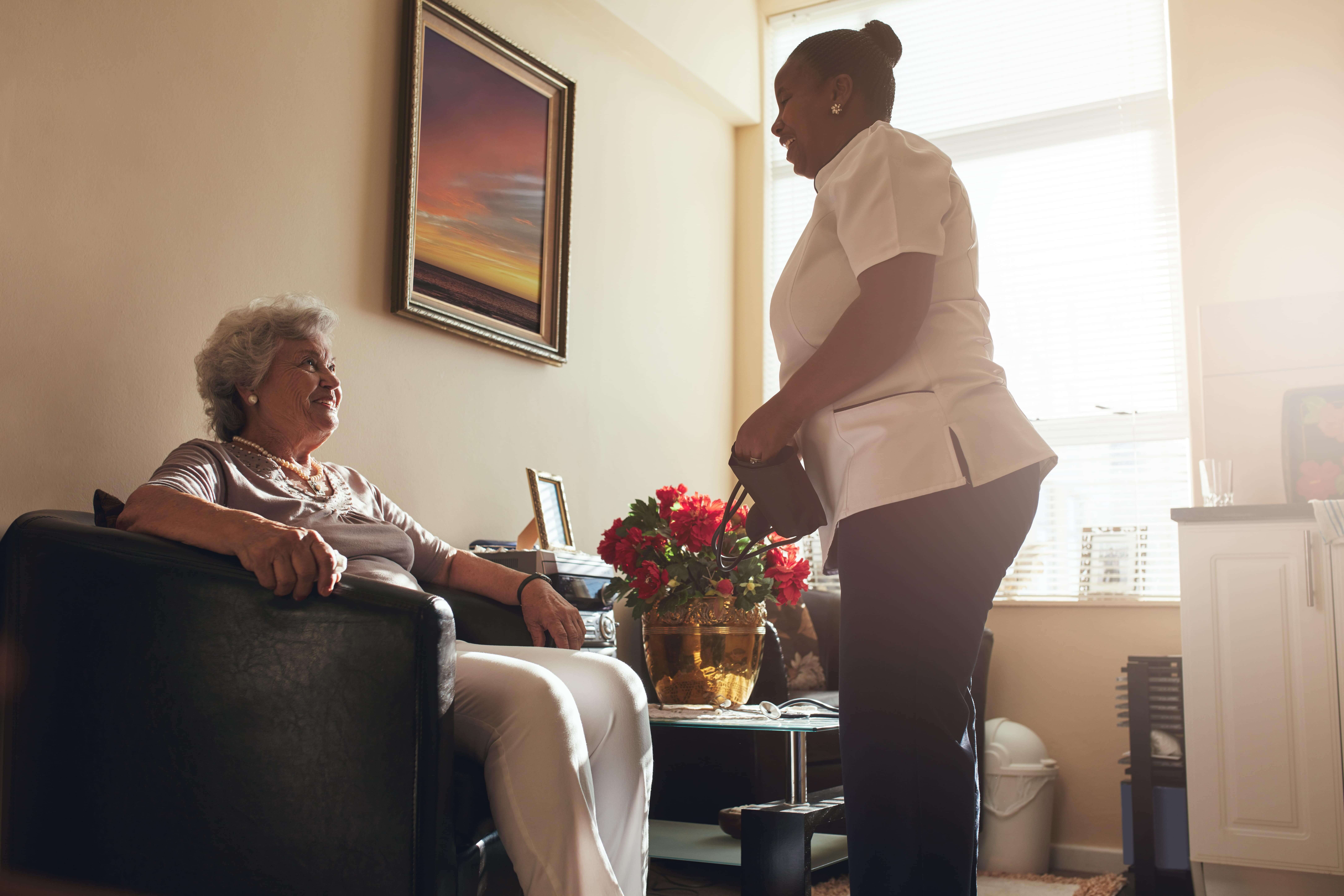Although restrictions have eased across the country, taking preventative measures against COVID-19 is still as important as it was before. Since those with Intellectual or Developmental Disabilities (IDD) are at a higher risk of exposure to COVID-19, preparing and adapting to safety measures is a must. The good news is that during this time, family members and home care professionals can provide the support and care to help those with IDD stay safe.
Here are 10 important tips on how you can support your loved ones with intellectual disabilities during COVID-19.
1) Monitor Your Relative for Symptoms
Your relative may not be able to monitor themselves for symptoms, or remember that there is a problem to be careful about. For this reason, it is essential that relatives of those with an IDD condition keep an eye out for signs of infection in order to protect their loved ones from infection risk.
COVID-19 Symptoms:
- Cough
- Shortness of breath and difficulty breathing
- Fever
- Chills
- Repeated shaking and chills
- Muscle pain
- Headache
- Sore throat
- Loss of taste or smell
2) Put On PPE Together
Masks are the single most important way to protect yourself, your loved one with IDD, and the people around you. People with IDD may have a harder time remembering why and how to wear their masks. They may also have an objection to wearing the mask because it's unfamiliar, or because of how it feels.
If Personal Protective Equipment (PPE) is something new to your relative with an intellectual disability, asking them to do something new can be a well-known challenge. One effective solution is to put on your PPE together. When you ask them to put on a mask, put on one of your own masks. If you put on gloves, do it at the same time. This way, you're sharing an activity as either a game or a responsibility, asking them only for what you are also willing to do.
3) Add Sanitation to Their Daily Routine
Sanitizing is your second line of defense, limiting the chance of any exposure to COVID-19. When you enter your loved one's home to provide care, always stop to wash your hands for at least 20 seconds. We recommend keeping packs of sanitizing wipes around the house, and keeping surfaces (i.e. tabletops) clean. For the sake of your loved one, try to gradually build handwashing and cleaning into a new, friendly daily routine. For those with IDD who can maintain the same routine day-to-day, this will empower them to take care of their personal hygiene each day.

4) Stock Up the Home for Unexpected Quarantine
Anyone caring for a relative with IDD at home should always stock up on critical household items in order to limit outside exposure. Some essentials to stock up on include:
- Medication: Stock up on medication for at least two weeks in advance, at all times. This way, you won't have to run to the pharmacy or take your loved one to the pharmacy should a new quarantine be necessary.
- Food & Water: Make sure the house has enough food and water, along with other weekly staples, to get by without a trip to the store. If the services are available in your area, rely on grocery delivery.
- Computer or Mobile Devices: Always ensure there is a computer or mobile device in the house that can be used for online appointments and outside communication.
- Games or Therapy Equipment: Keep extra supplies of games and therapy equipment around as a way to exercise the mind and body during quarantine. These can include: Paint by Number Kits, puzzles, noise-cancelling headphones, resistance bands, and trampolines.

5) Designate a Safe Retreat Room
Creating a safe-retreat and sensory-safe room can be helpful for those with IDD. A space where they can find respite and calm down in case of any anxiety or emergency will be key in keeping your loved one safe, both mentally and physically. A designated safe-retreat room can also serve as an isolated sick room should any member of the household fall ill. By isolating in a sick room, you may be able to prevent others from being infected.
To set up a safe retreat room, designate a quiet space in the house, spacious enough for your loved ones to sit or lie down with an accessible window for ventilation. The equipment in this room will vary based on your relative’s needs, but be sure to decorate it with items they enjoy. Some common sensory items include:
- Sensory lighting
- Aromatherapy diffusers
- Weighted blankets
- Sound machines
- Textured mats and chairs
Make sure to keep the space open and uncluttered to prevent overstimulation.
6) Make a Contingency Plan
Have a plan ready, just in case someone gets sick. Consider what you will do and what you may have to do if your relative with IDD does contract the infection and get sick. Consider what you will do if you get sick or if another member of the household falls ill.
Have a complete game-plan, including numbers to call, protocols to enact, and no-contact services that can help you. If you are looking for a caregiver or nurse that you can call in case of an emergency, contact Carnegie Healthcare to access our network of licensed and qualified health care professionals.

7) Have a Hospital “Go Bag” Ready
In addition to a “game plan”, have a “go bag” ready. If your relative needs to go into the hospital for an infection, or for reasons relating to their condition, have a hospital "go bag" already packed. Suggestions of what to pack include:
- Comfort Items (blanket, toy, photos, book)
- Personal Device (phone, tablet)
- Health Passport (basic medical history & preferences)
- Advanced Directive Paperwork (ex: power of attorney)
- Disability forms & protections
8) Stay Healthy and Boost the Immune System
This may sound minimal, but one of the best things you can do for your loved one and yourself is to keep healthy. Maintain a healthy diet and drink plenty of orange juice along with other Vitamin C supplements. Keep your immune systems strong so that if you or any other family comes into contact with the virus, you have the best possible chance of shaking it off and regaining your strength. Even if the worst happens, a strong immune system can reduce the risk of serious symptoms.
9) Limit Travel to Unnecessary Appointments
Keep your relative with IDD at home as much as possible. Cancel social events and gatherings and only attend necessary appointments to minimize the risk of exposure. If possible, arrange tele-appointments with your preferred physician. If your loved one needs to make a trip, provide safe travel arrangements, and make sure your relative is well-protected by PPE.

10) Plan Fun In-Home Activities
While staying home, your relative with IDD may become frustrated and depressed from the lack of social and fun stimulus. To keep them occupied and mentally healthy, plan fun activities, like making washable cloth masks based on cartoon characters, solving jigsaw puzzles, folding origami, and creating paper-mâché. By creating a positive association between quarantine and fun, your loved one may be more receptive to all these COVID-19 safety measures.
Conclusion
Taking care of a family member with an intellectual or developmental disorder can be challenging, especially in the face of strict COVID-safety protocols. But with a positive attitude and a new routine, many family members will be able to adapt their care methods and empower their loved ones to get involved.
.jpg)

